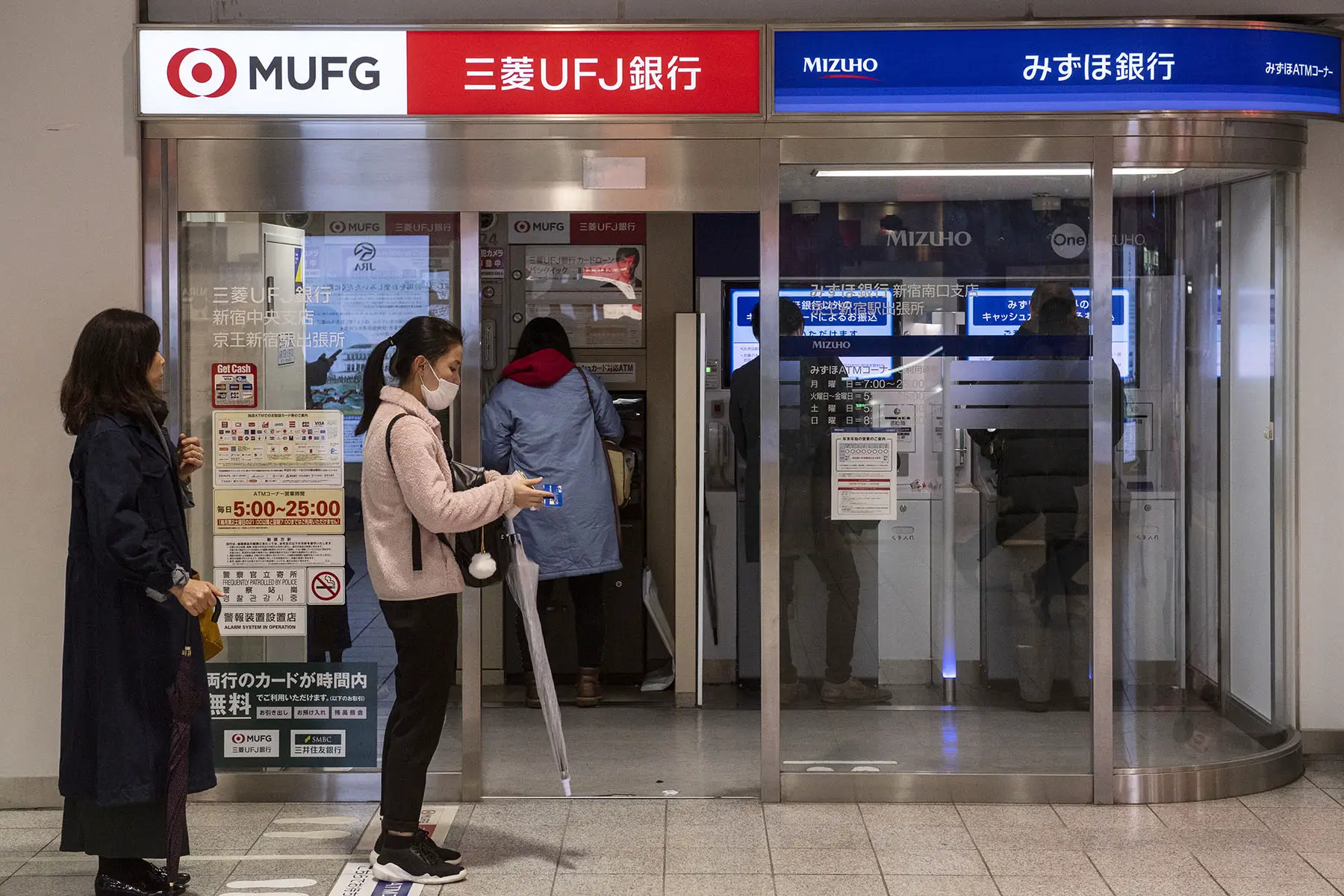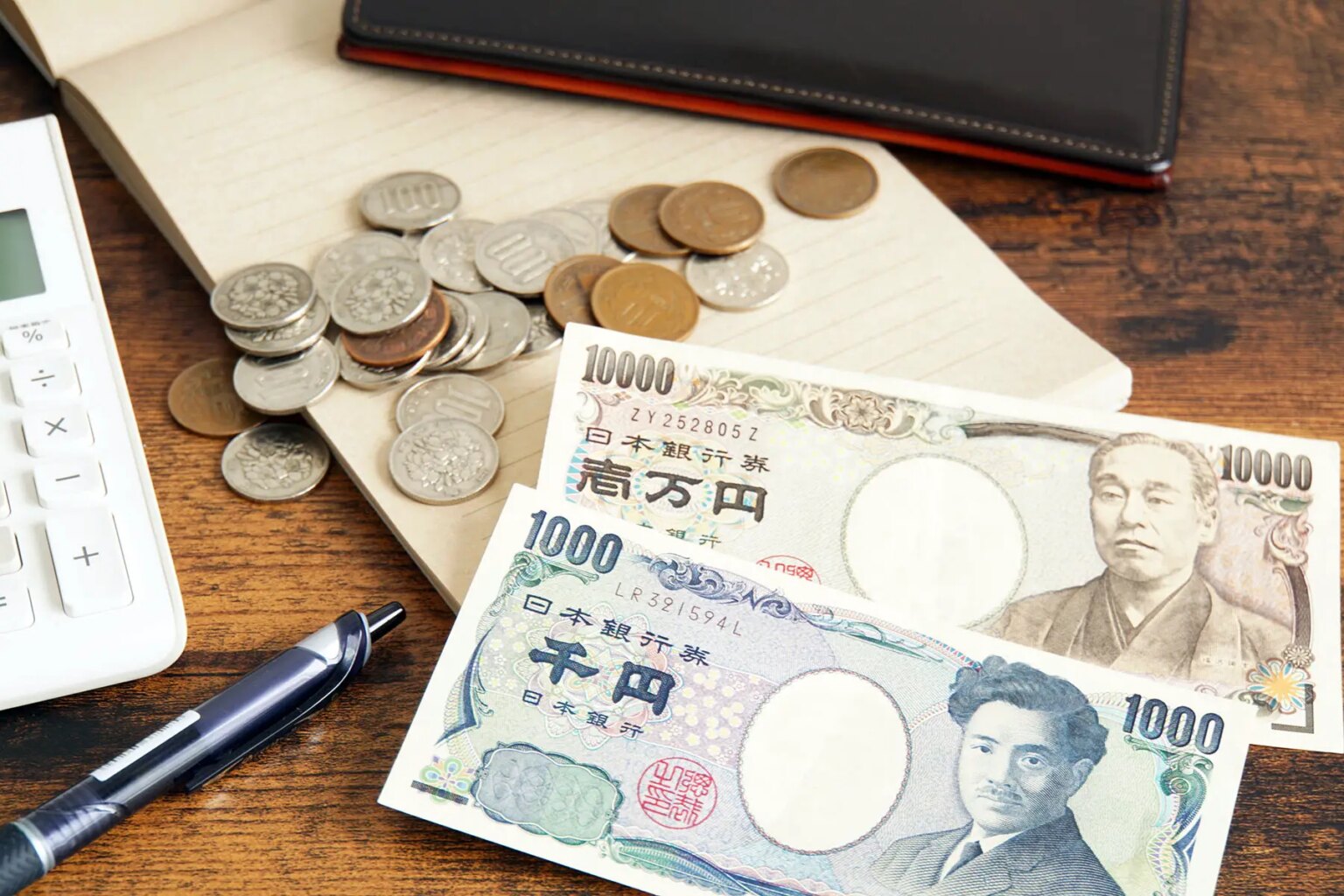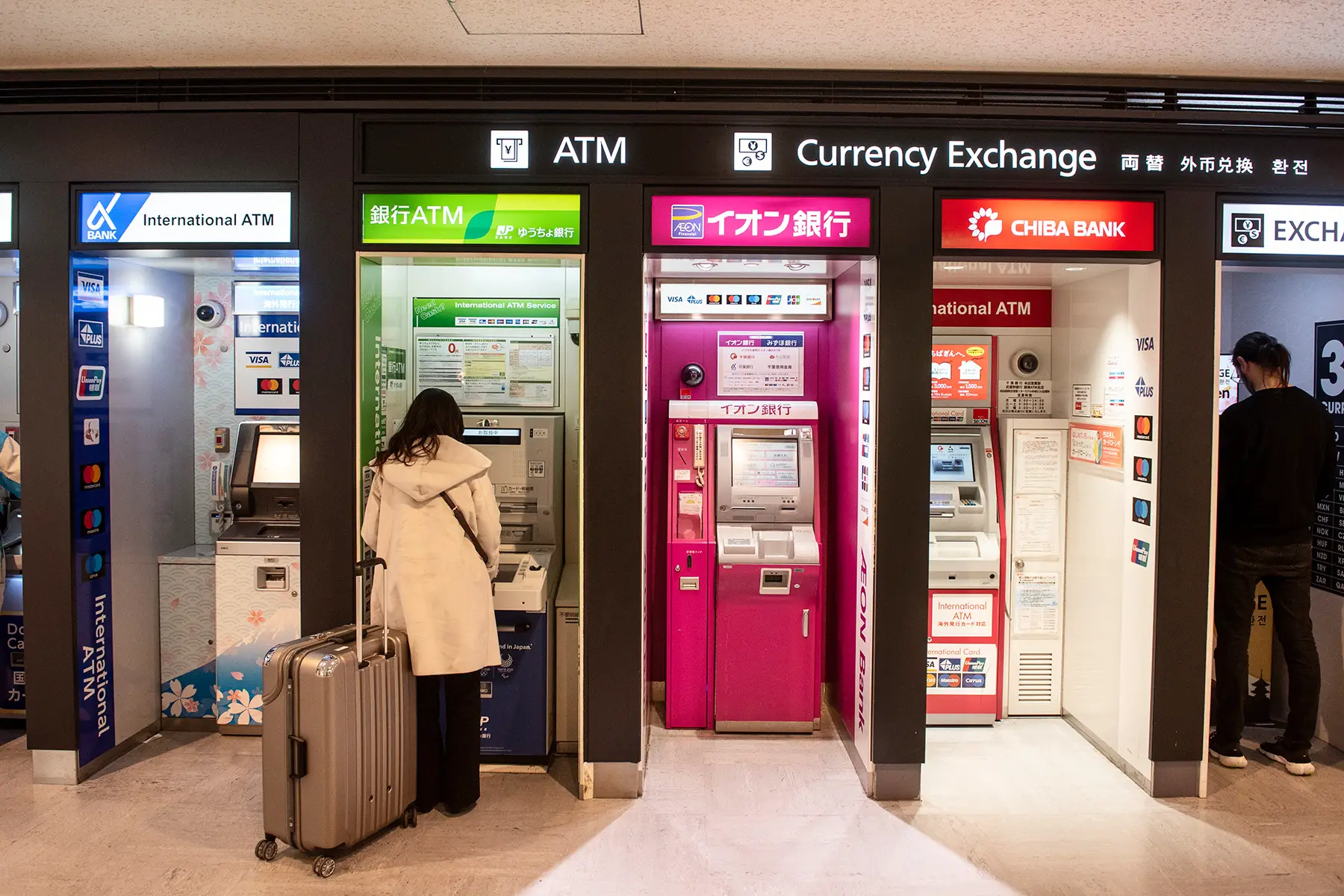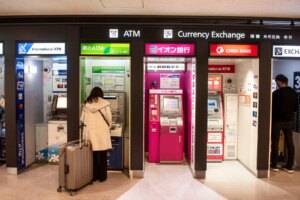Your move to Japan will be truly complete when you get a Japanese bank account (銀行口座) so you can enjoy paying your rent, bills, and other expenses. Luckily, the country has a sophisticated banking system with many different banks to choose from.
Continue reading to discover how you can open a bank account in Japan:
- Banking in Japan
- Do you need a bank account in Japan?
- Before you open a bank account in Japan
- Types of bank accounts in Japan
- Choosing a bank account in Japan
- How to open a Japanese bank account as an expat
- Opening a corporate account in Japan
- How to open a bank account in Japan for children
- Opening a bank account in Japan if you have poor credit
- What to do if you are refused a bank account in Japan
- Changing banks or closing a bank account in Japan
- Useful resources
Wise
Do your finances go beyond borders? Then you need a fast and secure way to move money internationally. Wise is a global leader in online international money transfers, letting you move money at an exchange rate several times cheaper than your bank. Whatever your personal or business needs, Wise can make your money go further.
Banking in Japan
Japan’s banking system consists of one national central bank, called the Bank of Japan (日本銀行 or 日銀), plus a commercial banking sector with over 600 other banks.

Banks include:
- City banks (都市銀行)
- Regional banks (地方銀行)
- Tier II regional banks (第二地方銀行)
- Trust banks (信託銀行)
- Foreign banks (外国銀行)
- Other banks, including:
- Online and mobile banks (ネット銀行)
- Credit associations (信用金庫), cooperatives (信組), and unions (労働金庫, rodo kinko)
Most organizations offer a similar range of services. That said, regional banks and cooperatives usually only operate in Japanese, so you’ll need to brush up on your language skills if you want to open an account there.
The Financial Services Agency (金融庁 – FSA) regulates the Japanese banking sector. Banks are registered with the Japanese Bankers Association (全国銀行協会 – JBA).
Do you need a bank account in Japan?
You’re not legally required to have a Japanese bank account when you move to Japan. However, having an account with a bank based in the country will make life much easier. For example, you can access your existing finances, receive wages, and pay things like mortgages and insurance policies much easier. This might not always be possible from an overseas account unless you use an international online or mobile bank.
Banking services in Japan
Banks in Japan provide largely the same services and products as you can find with banks elsewhere, including:
- Loans and overdrafts
- Savings and investment products (e.g., pensions)
- Insurance policies
- Mortgages
- Credit and debit cards
- Various payment options (e.g., money transfers and direct debits)
International money transfers in Japan
If you have to make international money transfers while in Japan, you can also opt for a global provider.

International companies operating in Japan include:
Before you open a bank account in Japan
Many banks require you to have lived in the country for at least six months before you can open a general deposit account (普通預金口座). Because of this, you can end up with an initial period where you don’t qualify for a standard account. Fortunately, there are a few ways around this issue:
- Open a basic non-resident account – some of the larger Japanese banks offer basic accounts with limited services which will serve you for the initial months
- Use an international bank that operates in Japan – if you have an account with a foreign bank that trades in Japan, the transition process is much smoother and cheaper
- Set up an account with a borderless online or mobile provider – several Japanese and international digital banks offer accounts to people living across the world
Although you can keep your foreign bank account, you will likely accrue a lot of transaction charges and might not be able to set up TV or internet. On the other hand, you might not need a Japanese debit card (デビットカード) as most stores were cash-only before the COVID-19 pandemic.
Types of bank accounts in Japan
General deposit account
The general deposit account is a standard type of bank account that most people in Japan (and elsewhere) get. It allows you to perform basic transactions, including:
- Sending and receiving money
- Paying bills
- Using debit or credit cards
- Accessing financial services (e.g., loans or overdrafts)
Some larger banks have different levels of this general account, for example, basic (標準) and premium (重畳) options. The higher-level accounts come with extra services and benefits. Although Japanese bank accounts don’t usually charge maintenance fees, higher-level accounts may include extra charges for certain products. For example, SMBC has membership fees for some payment cards with its Olive Account.

In addition, some banks offer current and savings accounts to children, young people, and students.
Savings account
If you’d like to make money while saving money, you can open a savings account. Most banks in Japan will give you higher interest rates, however, these types of accounts tend to come with conditions. For example, some require a higher initial deposit and restrict your access. In that case, you might only be able to withdraw funds after a certain period or by giving a minimum amount of notice.
A version of the Japanese savings account is a time-deposit account (定期預金). This is a high-interest account where you must make regular deposits according to a pre-determined schedule. This bank account only allows the withdrawal of funds at the end of a specified term.
Foreign currency deposit account
Some banks in Japan offer foreign currency or multi-currency accounts (外貨預金) where you can pay or withdraw money in foreign currency. These accounts are useful if you do a lot of cross-border transactions. However, keep in mind that you’ll have to pay exchange rate fees.
Choosing a bank account in Japan
With so many banking options available in the country, you’ll need to do your research and find the account that best suits your needs. Things to keep in mind:
- Cost – while many banks offer deposit accounts for free, there are still charges for various different services. Be sure to check a list of likely fees to see who provides the best deal.
- Product range – do you want to access things such as loans, investments, insurance, or pension plans?
- Expat-friendly services – this can include English-language services, international transfers, and multi-currency accounts
- Ease of access – if you need 24/7 access to funds and payments, you’ll need a bank with good online or mobile banking options
- Customer feedback – be sure to check reliable online review sites to see what existing customers are saying
- Unique features – is that bank offering anything that you cannot get elsewhere?
- Ethical performance – if this is important to you, you can check websites like CSRHub and Corporate Knights to see how companies perform in ethics and sustainability
Managing your bank account in Japan
You can manage your bank account depending on your bank and your preference.

For example:
- Face-to-face – there are 33.9 bank branches per 100,000 adults in Japan, nearly double the European Union average.
- Phone – most banks offer assistance by phone during business hours and some include video appointments via platforms like Zoom.
- Online – the major Japanese banks offer online banking so you can control your finances digitally 24/7.
- Mobile – many banks in Japan also have mobile apps that allow access to mobile payment and money management services.
How to open a Japanese bank account as an expat
To open a standard bank account, you must be a long-term resident who has lived in Japan for at least six months. After that, opening a Japanese bank account is fairly straightforward – by visiting the bank in person, or applying by online. You’ll typically need to complete an application form and provide the following:
- Residence card
- Japanese ID number (your unique social security number)
- Your personal seal, although some banks accept a signature as well
In some cases, you might be asked to supply:
- Additional proof of address (e.g., utility bill)
- Your phone number
- Certificate of residence
- Proof of ID (e.g., passport)
Savings accounts and high-end current accounts often require an initial deposit as well. This can sometimes be as little as around ¥1,000 (approximately €7 or USD$ 7.50).
Bank accounts are generally opened right away; if you open the account in person, you will likely receive your ATM card and passbook that same day. Otherwise, they will arrive in the mail later that week.
Online banking in Japan
Although many traditional banks offer mobile apps and services, there are also mobile-only banks that allow you to access your finances 24/7. They present a great alternative to traditional banks because they also offer cross-border services.

To open a mobile-only bank account, you typically just need to download the app to your smartphone and provide your ID, address, and phone number. Online-only accounts are almost always protected with biometric ID security (e.g., fingerprint or face recognition).
Opening a corporate account in Japan
If you’re starting a business in Japan, you can opt to open a business bank account (法人口座). Many banks offer corporate accounts, as well as business loans, insurance, and investment products.
Getting a corporate bank account is slightly more complex and time-consuming than when you open a personal account. For starters, at least one of the business owners or directors is usually required to be a Japanese resident with a personal bank account. Moreover, the bank will invite at least one of the owners or directors for an interview. The entire process can take around 4–6 weeks.
Required documentation varies on the size of the business and type of account, but usually include:
- Notarized company registration documents
- Corporate seals from the Legal Affairs Bureau
- Corporate ID number issued by the National Tax Agency
- Residence card of at least one representative business owner or director
There might be additional requirements, such as:
- Business plans with profit forecasts
- Additional proof of business address
- Evidence of funds to make an initial account deposit
If your business is already up and running and you are looking to open a new account, you will also need to show your most recent accounts.
Banking fees vary depending on the size of the business and the type of account. Basic monthly administration fees can range from ¥500 for micro-enterprises and small businesses to around ¥20,000 for multinational corporations. You’ll also be charged for services that you are using, including credit cards, loans, and international money transfers.
How to open a bank account in Japan for children
Getting your child their own bank account is a great way to teach them about money or give them more responsibility. A number of banks in Japan provide junior deposit and savings accounts, including Mizuho Bank (みずほ銀行) and SMBC (三井住友銀行).

Children’s accounts in Japan are the most basic accounts, with features such as ATM cards and modest interest rates. Junior savings accounts might come with conditions like no withdrawal of funds for a specific time period. You can usually transfer this type of account to a standard adult account once the holder reaches the age of 18.
To open a children’s bank account, at least one parent or guardian must give their permission. Parents can usually open an account on behalf of their children aged under 15 (without them being present). However, if an account belongs to a young person aged 15–18, the child will typically need to be present or given written permission.
Some banks have additional stipulations as well. For example, at least one parent or guardian must also have a personal account with the bank.
The process and required documents are the same as when you open an account for an adult. An extra requirement is that you provide your personal details (i.e., your ID and proof of address).
Opening a bank account in Japan if you have poor credit
Most Japanese banks allow you to open a general deposit account regardless of your credit situation. However, if you have a poor credit score – for example, you have a history of unpaid debts – you will be restricted in the services you can access. For instance, you’ll only have access to a basic account with an ATM card, without access to a debit card, credit card, or overdraft and loan facilities.
You can visit the Credit Information Center to see what your credit status is.
What to do if you are refused a bank account in Japan
If you experience issues opening up a bank account in Japan, you must contact the bank itself first. Most banks have a designated complaints or human resources (HR) team that will be able to explain the problem in more detail. Sometimes it’s only as simple as missing documentation or not fulfilling the residency requirement.
If your application is refused and you are disgruntled about the treatment you received, you can file a complaint with the JBA. However, keep in mind that you’ll first have to contact the bank itself first. The JBA will mediate between you and the bank and will try to resolve the dispute. If unsuccessful, or the bank doesn’t respond within two months, they will escalate the complaint to their internal Mediation Committee.
If you’re still unhappy with the outcome, you can take the matter to court.
Changing banks or closing a bank account in Japan
Depending on the terms and conditions, you can close your bank account at any time, either by post or by visiting one of the branches. Some banks also allow you to close your account online.

You’ll typically need to complete a closure form and provide (digital copies of) your:
- Bank card (キャッシュカード)
- Passbook (通帳)
- Seal or signature (印鑑/署名)
If you are transferring your finances to another bank, you can ask the new bank if they are offering a switching service that can make the transfer easier.
As long as you don’t have any outstanding debts (e.g., overdraft or outstanding loans), there should be no charge for closing or switching a bank account. However, if you do have outstanding debt, you will need to settle this to avoid charges or make arrangements with your new bank.
Useful resources
- Bank of Japan – central bank in Japan
- FSA – regulatory authority for Japanese financial institutions including banks
- JBA– the Japanese Bankers Association that also provides a dispute resolution service




